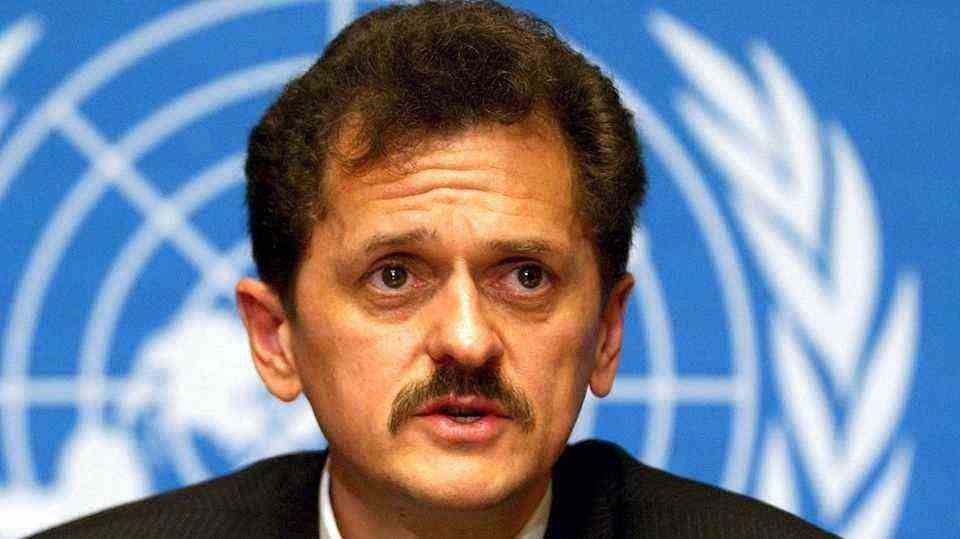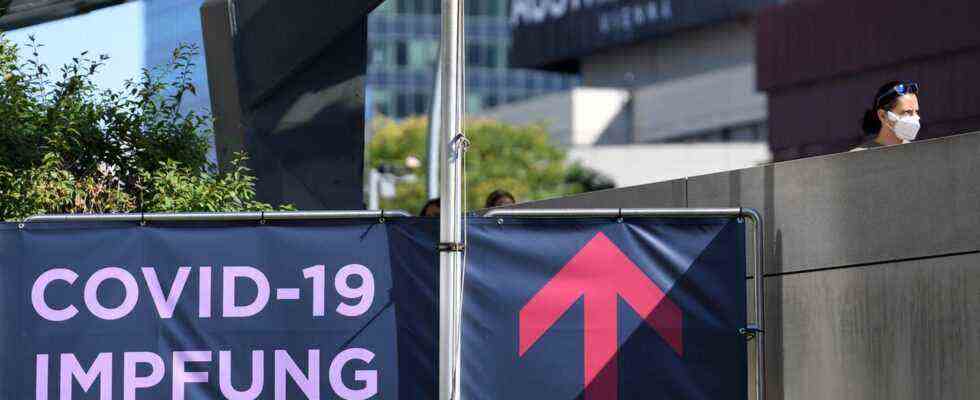fight against pandemic
Austria introduces compulsory vaccination against coronavirus: This is how it should be enforced
In Austria, there is now no way around vaccination for most people – thanks to compulsory vaccination
© Roland Schlager/APA/DPA
Austria is the first country in the European Union to introduce mandatory vaccinations for all citizens over the age of 18. Those who refuse to vaccinate face fines. But how do you want to implement the new regulation? The success remains uncertain for the time being.
Austria wants to arm itself against future corona waves with a comprehensive vaccination requirement. The Alpine republic was the first country in the European Union to introduce general corona vaccination. The parliament in Vienna passed a corresponding draft law on Thursday evening after a debate lasting several hours with 137 to 33 votes. The vaccination requirement for adults over the age of 18 will therefore come into force on February 4th. Heavy fines for those who refuse to vaccinate are to be imposed from mid-March.
There are exceptions for pregnant women and for people who cannot be vaccinated for medical reasons. Originally, the government only wanted to exempt children under the age of 14 from compulsory vaccination. Young people are now exempt from the rule. Those who have recovered are also exempt from the obligation to vaccinate up to 180 days after the illness.
Police should carry out random checks
There is still a transitional phase until mid-March, during which all households will be informed in writing and no penalties will be imposed. According to this, anyone who has a main or secondary residence in Austria and cannot present proof of vaccination must expect to be reported and fined between 600 and 3600 euros. The amount of the penalty depends, among other things, on income and assets. The fine also increases for repeated reports. Imprisonment, on the other hand, is explicitly excluded.
Random checks by the authorities are planned from mid-March. For example, the police should also check the vaccination status during their operations. There has also been criticism from the police union for this additional task. The originally planned complete control by comparing the population register with the vaccination register is only intended as an option. This measure should be made dependent on whether the vaccination rate increases significantly, as hoped. Health Minister Wolfgang Mückstein (Greens) described a quota of 85 to 90 percent among the vaccinable population aged five and over as the target. It is currently around 75 percent. The vaccination rate of the total population is 72 percent.
Compulsory vaccination through the front door – the anti-corona vaccine is mandatory in these countries
12 images
Financial vaccination incentives in Austria
The governing parties ÖVP and Greens had agreed on the text of the law with the social democratic SPÖ and the liberal Neos. The acceptance of the template was therefore considered safe. Only the right-wing populist FPÖ strictly rejects compulsory vaccination.
Mückstein defended compulsory vaccination as an act of solidarity. “The more people have a corona vaccination, the fewer die as a result of a corona pandemic,” said the minister in parliament on Thursday.
The government is acting with carrot and stick. Because with the vaccination requirement, a billion-dollar package of incentives was also passed. Among other things, a vaccination fleet is planned, in which vouchers worth 500 euros will be raffled off among vaccinated people. Not only those who decide late can take part, but also those who are already protected. Around every tenth stitch should be rewarded in this way.
In addition, municipalities should receive financial aid, the amount of which depends on the vaccination rate in the respective municipality. A total of 75 million euros will be distributed for communities with a vaccination rate of 80 percent, 150 million euros for 85 percent, and 300 million euros for 90 percent. In total, up to 1.4 billion euros are available, said Chancellor Karl Nehammer from the conservative ÖVP.

Protests against compulsory vaccination
Since the project was announced in November, tens of thousands have regularly taken to the streets at weekends to protest against the planned compulsory vaccination. The FPÖ had often called for this. Also on Thursday morning, a few hundred opponents of compulsory vaccination gathered for a protest in front of the parliament building.
On Wednesday, the government announced it would establish “security zones” around health facilities and vaccination centers so police can turn away anyone who “causes trouble,” including protesters.
So far, only a few countries around the world have introduced compulsory vaccination against the coronavirus. Before Austria, only Ecuador, Tajikistan, Turkmenistan, Indonesia and Micronesia had gone this route. In several European countries, including Italy, France and Great Britain, the corona vaccination is mandatory for certain age or occupational groups.
Like many European countries, Austria is currently struggling with another corona wave, which is mainly driven by the highly contagious omicron variant. The number of daily new infections reached a new high on Wednesday with 27,600 cases. Since the beginning of the pandemic, almost 14,000 Covid-related deaths and 1.5 million infections have been recorded in a population of around nine million.

